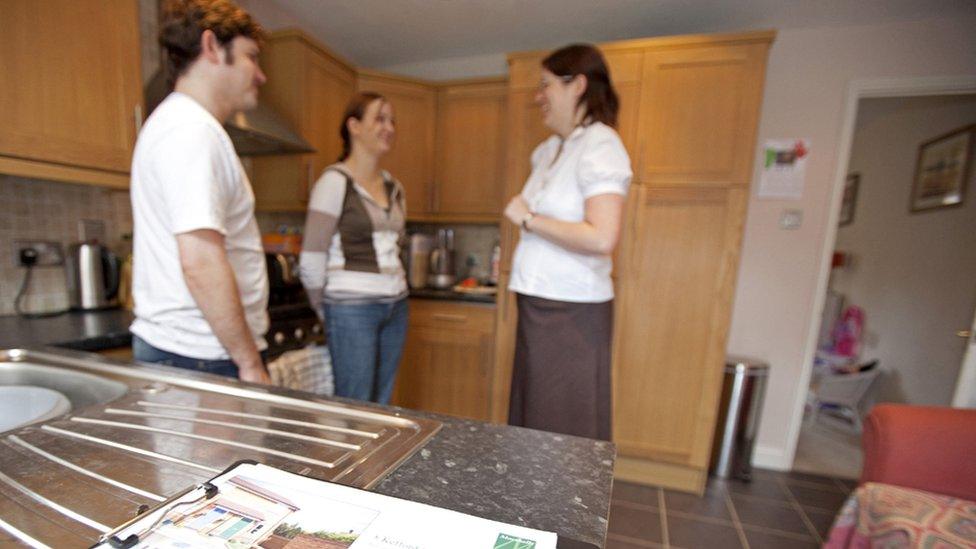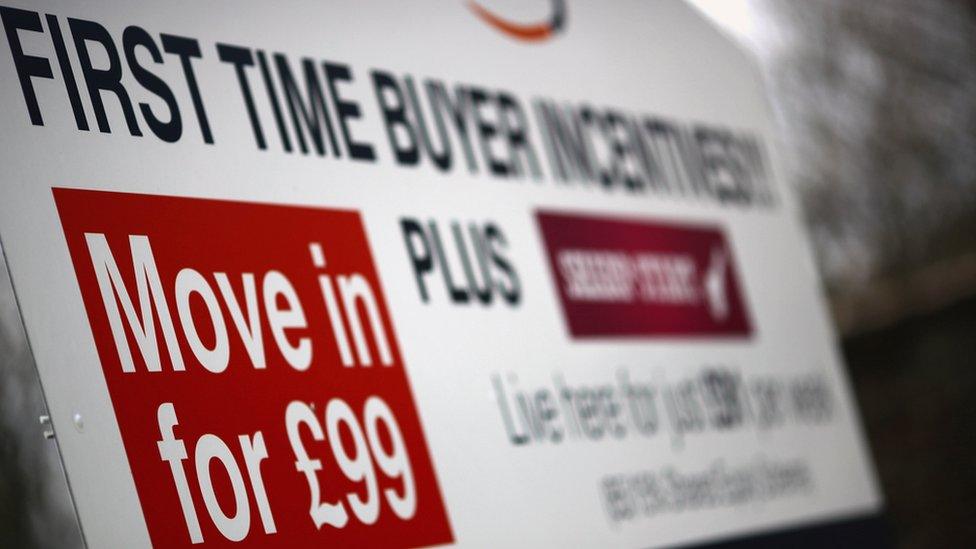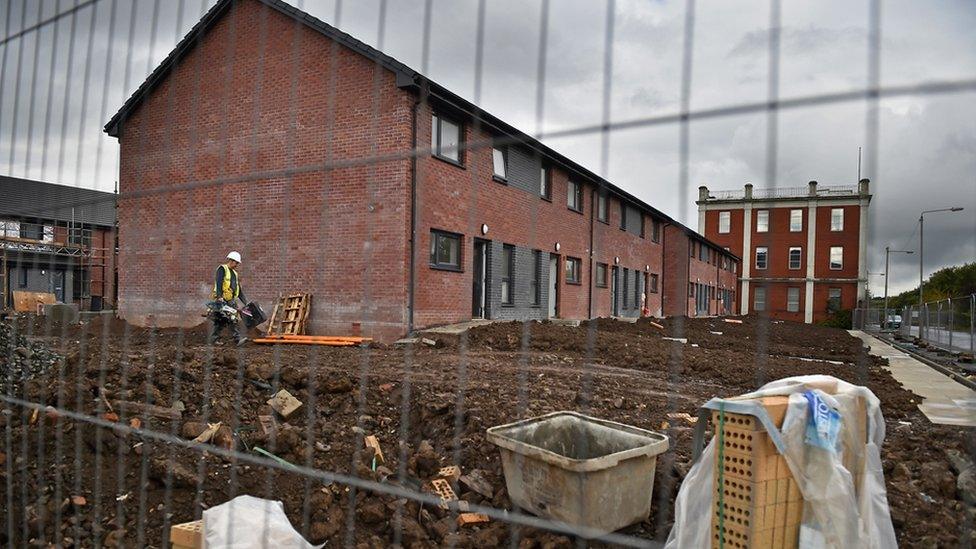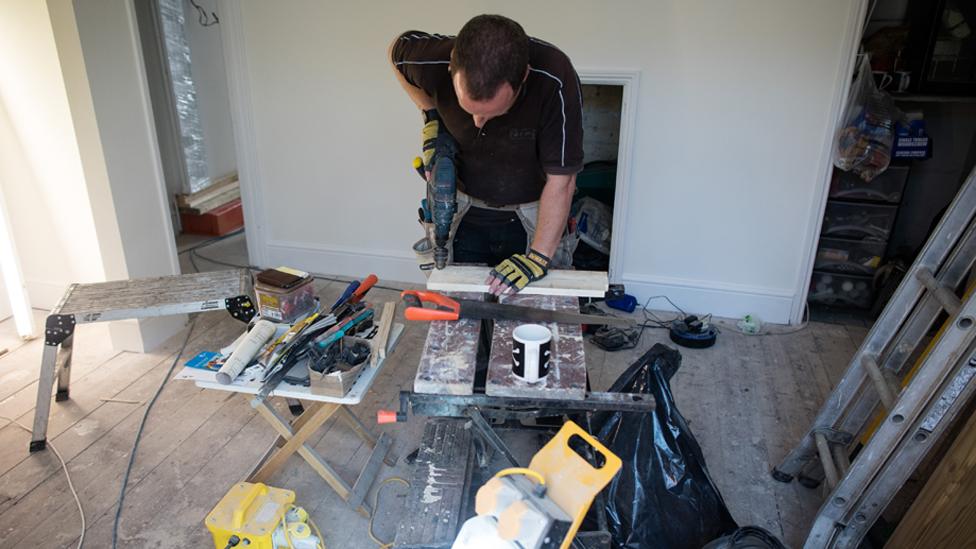First Home Fund: New scheme unveiled to help buyers in Scotland
- Published

A pilot scheme which will help first-time buyers with the cost of a new home has been launched in Scotland.
The Scottish government's First Home Fund, external will contribute up to £25,000 towards the cost of buying a property through a shared equity scheme.
A total of £150m will be made available between now and March 2021, providing assistance to at least 6,000 people.
It will operate alongside the existing government schemes to help with the cost of buying a home.
How will the First Home Fund work?

First-time buyers will be able to apply for up to £25,000 to help them buy a property.
The pilot scheme will be open to all first-time buyers in Scotland, and can be used to help buy both new-build and existing properties.
They will need a minimum deposit of about 5% and the mortgage must be at least 25% of the purchase price.
It is a shared equity scheme, which means the purchase cost is split between the buyer and the Scottish government.
The buyer usually repays the government's contribution when the property is sold.
For example, if the buyer pays 85% of the property's value through a deposit and a mortgage, the Scottish government will hold a 15% share. When the home is sold, the owner would keep 85% of the final sale price and the government would receive 15%.
However, the buyer can also increase their share of equity and repay all or part of the government's stake in the property over time - a process known as "tranching up".
What other schemes are available in Scotland?

There are three other shared equity schemes being run by the Scottish government to help people buy homes.
Help to Buy (Scotland), external can provide up to 15% of the purchase price of a new-build property which costs up to £200,000.
It is open to both first-time buyers and those who are already on the property ladder.
There are also two shared equity schemes available through the Low-cost Initiative for First Time Buyers (Lift), external - the Open Market Shared Equity (OMSE) scheme and the New Supply Shared Equity scheme (NSSE).
The OMSE scheme, external is aimed at people with low to medium incomes who could not otherwise afford to buy a home on the open market that meets their needs.
The NSSE scheme, external helps people buy a new-build home from a council or housing association.
The Scottish government says it has provided more than £1.2bn in support through shared equity schemes since 2007.
What are people saying about the new scheme?

First Minister Nicola Sturgeon said: "For many people, getting a deposit together is often an obstacle in buying their first home.
"Removing barriers and supporting people to buy the home they want is at the heart of this new fund. That is why we are acting to make the process fairer, to offer a helping hand to those buying a new home."
The Scottish Building Society is one of the first lenders to sign up to the fund.
Its chief executive officer Paul Denton said the scheme offered a greater degree of flexibility to first-time buyers, and would allow them to access mortgages with lower interest rates.
"Compared to other funding schemes, there are no limits on the property value, and the government contribution could be as high as 49%, allowing for more people to purchase their first home," he said.
Nicola Barclay, chief executive of industry body Homes for Scotland, said: "Initiatives such as this and Help to Buy are crucial, not only in helping people achieve their housing aspirations but also in helping to relieve pressures on the social and private rented sectors."